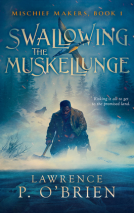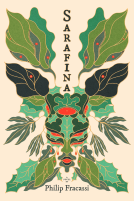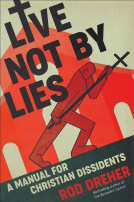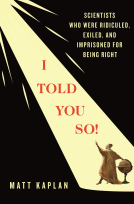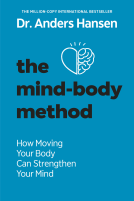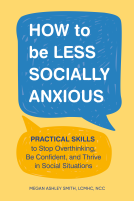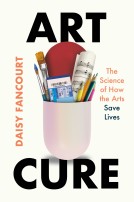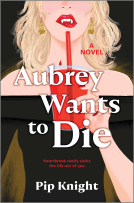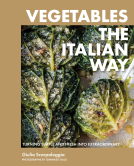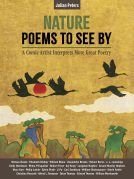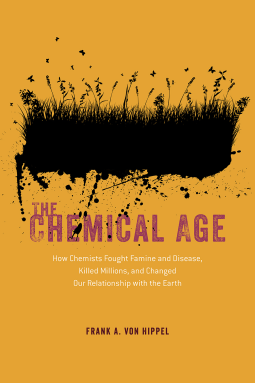
The Chemical Age
How Chemists Fought Famine and Disease, Killed Millions, and Changed Our Relationship with the Earth
by Frank A. von Hippel
This title was previously available on NetGalley and is now archived.
Send NetGalley books directly to your Kindle or Kindle app
1
To read on a Kindle or Kindle app, please add kindle@netgalley.com as an approved email address to receive files in your Amazon account. Click here for step-by-step instructions.
2
Also find your Kindle email address within your Amazon account, and enter it here.
Pub Date Sep 04 2020 | Archive Date Jul 01 2020
Talking about this book? Use #TheChemicalAge #NetGalley. More hashtag tips!
Description
For thousands of years, we’ve found ways to scorch, scour, and sterilize our surroundings to make them safer. Sometimes these methods are wonderfully effective. Often, however, they come with catastrophic consequences—consequences that aren’t typically understood for generations.
The Chemical Age tells the captivating story of the scientists who waged war on famine and disease with chemistry. With depth and verve, Frank A. von Hippel explores humanity’s uneasy coexistence with pests, and how their existence, and the battles to exterminate them, have shaped our modern world. Beginning with the potato blight tragedy of the 1840s, which led scientists on an urgent mission to prevent famine using pesticides, von Hippel traces the history of pesticide use to the 1960s, when Rachel Carson’s Silent Spring revealed that those same chemicals were insidiously damaging our health and driving species toward extinction. Telling the story of these pesticides in vivid detail, von Hippel showcases the thrills and complex consequences of scientific discovery. He describes the invention of substances that could protect crops, the emergence of our understanding of the way diseases spread, the creation of chemicals used to kill pests and people, and, finally, how scientists turned those wartime chemicals on the landscape at a massive scale, prompting the vital environmental movement that continues today.
The Chemical Age is a dynamic, sweeping history that exposes how humankind’s affinity for pesticides made the modern world possible—while also threatening its essential fabric.
Advance Praise
McKay Jenkins, author of Food Fight: GMOs and the Future of the American Diet
“The Chemical Age is a vital and refreshing synthesis of public health, agricultural development, war, and pesticide history. With crisp writing, von Hippel draws from an impressive breadth of sources to tell a revealing and truly thought-provoking story.”
David Kinkela, author of DDT and the American Century
Marketing Plan
- Multi-city tour planned for summer-fall 2020- Targeted galley mailing - Trade advertising - Extensive print, online, and radio/TV outreach- Influencer buzz campaign - Social media promotion
Available Editions
| EDITION | Other Format |
| ISBN | 9780226697246 |
| PRICE | $32.00 (USD) |
| PAGES | 368 |
Average rating from 12 members
Featured Reviews
 Maria Grazia B, Book Trade Professional
Maria Grazia B, Book Trade Professional
As a chemist I have always claimed that chemistry must be better understood, because our own body is a chemical laboratory, operated by means of biology. Frank von Hippel, descendant of an impressive dynasty of chemists, explains the concept very well through his account of the eradication of certain diseases that have plagued humanity, from malaria to plague. Following in the footsteps of the chemical compounds used for this purpose, he has made clear the obscure link between chemistry and war, also proving to be an outstanding historian. "The chemical age" is an important book, which deals with a difficult subject in simple language, a true, authentic book of scientific dissemination in the best sense of the term.
Books of science are generally more scientific than literary.
Popular science needs to be simple to resonate with masses and to deliver pain free message.
This book does both the things positively.
It describes in a highly readable prose how chemistry has shaped history of humankind.
It starts with potato blight and it's treatment by chemists.
Then it explores diseases that killed millions like malaria, plague and typhus fever.
It explores process of havoc created by these diseases and how their cause was identified.
Then there is account of how few chemicals radically reduced mortality of these diseases.
It is fascinating to see how scientists infected themselves to research and in few instances even died doing it.
It is mind boggling dedication towards scientific pursuits.
At end there is also introspection of harmful side effects of chemicals like war gases, DDT and other insecticides.
Contemporary media and political happenings around chemicals are also added.
A very good collection of anthology of human interaction with pests and chemicals for their eradication and use in warfare.
Recommended for science buffs.
Thanks netgalley and publisher for review copy.
 Reviewer 536865
Reviewer 536865
Achievements of human intelligence that changed a modern world.
First of all, I want to say thank you to the author for bringing all these facts, events and important people of the world’s science into one book. I wasn’t familiar with quite a few things from this book, and I was eager to keep reading it. So many events from the past, that are making our lives so much easier and worry free these days. And the most important thing, everything is so well explained all through the course of the book.
This book is about work of different scientists, from different parts of the world that were working towards the same target. Stop spread of diseases and improving quality of life. Which is fascinating on its own. If you think about it, there was no technologies few centuries ago, and scientists communicated via letters, it was a long process. A lot of ideas were refused, but after some time overlooked and accepted. I was fascinated by so many facts of this book. Vaccination, Pasteurization, Fertilizers, Pesticides are all great innovations in chemistry that evolved over the past century!
Major problems and how scientists fought against them that are covered in this book;
• Famine (Potato blight, mainly in Ireland and issues with French Vineyards).
• Plague( Marsh Fever, Black Vomit or Yellow fever, Jail Fever, Black Death).
• War ( mainly food stock issues and chemical weapons developed during the WWI and WWII).
• Ecology ( aftereffects of human experiments with toxic chemicals).
My favourite part of the book is F.Haber. For certain, obvious reasons not many people are familiar with this scientist and his researches. No doubt, his scientific carrier was very controversial, due to invention of chlorine and other deadly gas substances that were used during the war. BUT he also invented fertilizers and enhanced productivity of crops, that improved famine and economical situation not only in Europe but in Chile too. He was awarded with a Nobel Prize in 1918 for this research.
Pesticides is third most discussed topic in this book after yellow fever and malaria. Some of them were invented for good but ended up being used for inhuman reasons during the war times (DDT, Zyklon, Zyklon B). Mentions of “Silent Spring” book by Carson made me think a lot. All these chemicals that we are using on a daily basis, causing more and more pollution and damage to flora and fauna, eventually will have an impact on us all. We have to learn how to take care of the nature.
I would recommend this book to everyone! In my opinion everyone can find something interesting and useful from it. And with no doubt it deserves 5/5 🌟🌟🌟🌟🌟.
When I started reading this book, I kept checking the title, whether I am in the right book. It starts off like one of these books about epidemiology, like the ones we read so many of during the current crisis. But after a third into the book, you can see that Frank A. Hippel sets the stage, the motivation for our early endeavors into applied chemistry to contain outbreaks and diseases. Pretty much everyone was well intended..Chemical weapons, it turns out, where more a by product in the war on diseases and pandemics, and true criminals were rare.
As these stories of early applied chemistry evolve, we learn about the unintended consequences. While these applications helped to manage one health risk, they sometimes creates others. The stories are well written and deeply embedded in world history. Do not expect a book about chemistry, expect a book about the evolution of chemistry, from the development of its needs, solution approaches and results.
The books slow built-up, eye-popping middle section ending with a bang makes this book really enjoyable even if you are not a big fan of non-fiction.
Frank A. von Hippel has woven a really interesting history of how human knowledge of chemistry has shaped our world in profound ways. Often the solutions humans find have unintended consequences that must be addressed. The four major sections are Famine, Plague, War, and Ecology, but there is much overlap as the main problems have secondary effects. Thought-provoking and humbling.
Thanks to the publishers and NetGalley for the opportunity to review a digital ARC in exchange for an unbiased review.
Readers who liked this book also liked:
Silvia Moreno-Garcia
Historical Fiction, Literary Fiction, Sci Fi & Fantasy
Megan Ashley Smith, LCMHC, NCC
Health, Mind & Body, Nonfiction (Adult), Self-Help
Lauren Springer; Bryan Fischer
Crafts & Hobbies, Home & Garden, Nonfiction (Adult)
